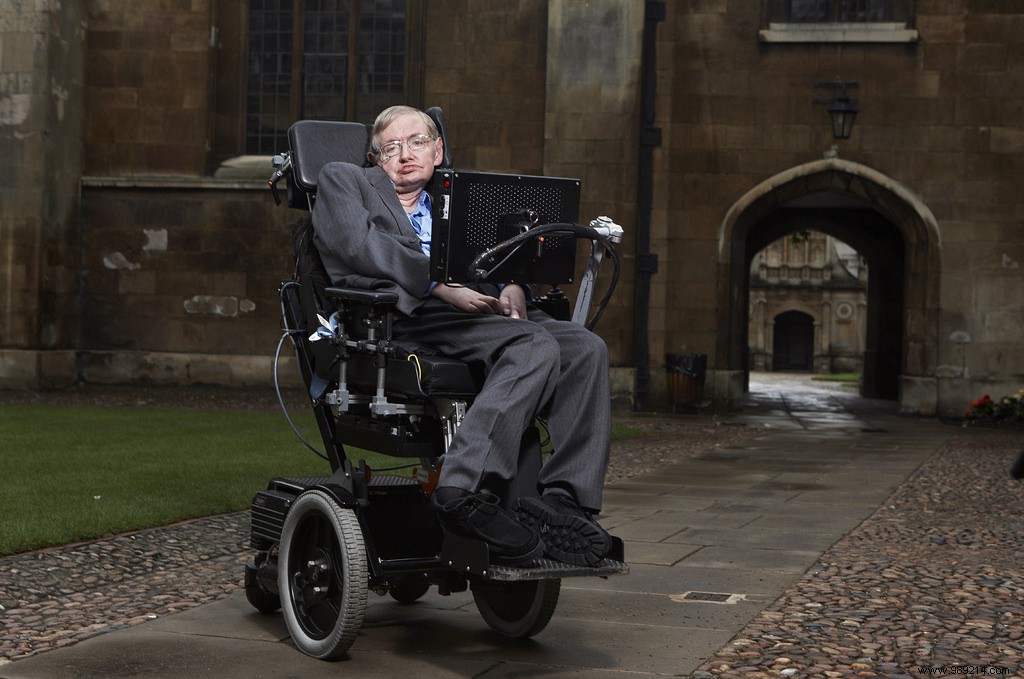A patient unable to move anything was recently able to communicate with his family by typing short sentences on a keyboard with sheer force of his mind. These results, made possible by a brain implant, overturn previous assumptions about the communication skills of people who have lost all voluntary muscle control.
In its later stages, amyotrophic lateral sclerosis (ALS) can lead to extreme isolation . Because of this neurological disease, people indeed lose control of their muscles and after a while, communication becomes more and more difficult. Some, however, can use an eye-tracking camera to select letters on a screen (like Stephen Hawking), while others can answer “yes” or “no” questions with subtle eye movements.
Unfortunately, most of these patients die within a few years of diagnosis, but some choose to prolong their life on a ventilator. These people can then spend months or even years hearing without being able to communicate . This brings us to this study.
In Nature Communications, researchers report that for the first time, a man in this complete state of confinement was able to formulate simple sentences to communicate with his family thanks to an implant .
It all started in 2016. At the time, the team of Dr. Mariska Vansteensel, from the University Medical Center in Utrecht, reported that a woman with multiple sclerosis Amyotrophic Lateral Disease (ALS) could spell sentences with a brain implant that could detect attempted hand movements. However, this person still had minimal control of some muscles . Thus, it was still unknown at the time that a brain that had lost all control over the body could actually signal or not signal intended movements coherently enough to enable meaningful communication.
The participant in this new study, a 36-year-old German, started working with a team from the University of Tübingen in 2018, when he could still move his eyes. Aware that he would soon be unable to do so, he asked the researchers to work on an implant allowing him to maintain communication with his family. His wife and sister provided written consent.
For this work, the researchers inserted two arrays of electrodes into the part of the brain that controls movement. The team then turned to the process of neurofeedback, in which the patient's neural activity was measured and presented to them in real time. The goal was for the latter to manage to self-regulate his neuronal activity supposed to underlie a behavior.
After several weeks of training, the man finally learned to generate brain activity that could change the frequency of a sound wave through a computer program. He then applied this same strategy to control a spelling program that allowed him to select letters one at a time to form words at an average rate of about one character per minute .

By holding the tone high or low, the man could first "write" the words "yes" and "no" by focusing his neural activity on individual letters. About three weeks later, he would have finally managed to produce an intelligible sentence (a request for caregivers to reposition him). In the year that followed, the man hadmanaged to utter dozens of sentences .
Of course, it wasn't 100%. The patient reportedly successfully matched a series of target tones with 80% accuracy only 107 times over the 135 days reported in the study. And he was only able to produce an intelligible sentence 44 times in those 107 days .
"We can only speculate about what happened on other days, the authors note. The participant might have fallen asleep or just wasn't in the mood. Perhaps the brain signal was also too weak for the computer's decoding system to be tuned optimally.
The study shows that it is possible to maintain communication with a person while they lock themselves in by adapting an interface to their abilities thanks to an implant . Nevertheless, hundreds of hours were spent designing, testing and maintaining the custom system. Also, additional work will obviously be necessary to make the technique more effective and, above all, affordable.
This new breakthrough also raises ethical questions. Discussing end-of-life care preferences is hard enough for people who can talk. It is therefore difficult to imagine this type of conversation and all that it involves with one of these devices that only allow you to speak three sentences a day. misinterpretations could indeed have serious consequences .
On this point, the research team suggests that the participant's medical care should not depend on this type of interface. And that such decisions should always rest with family members.